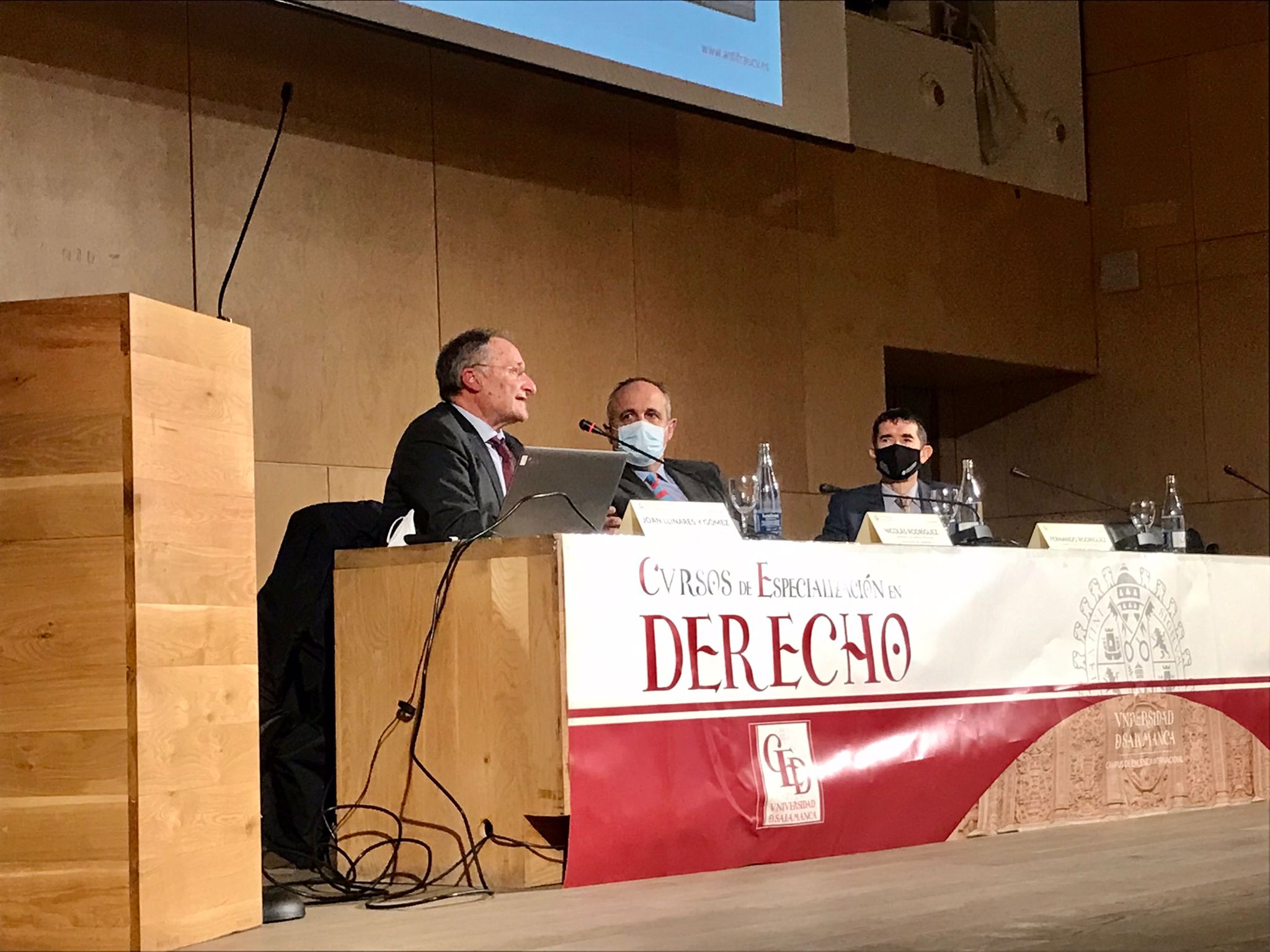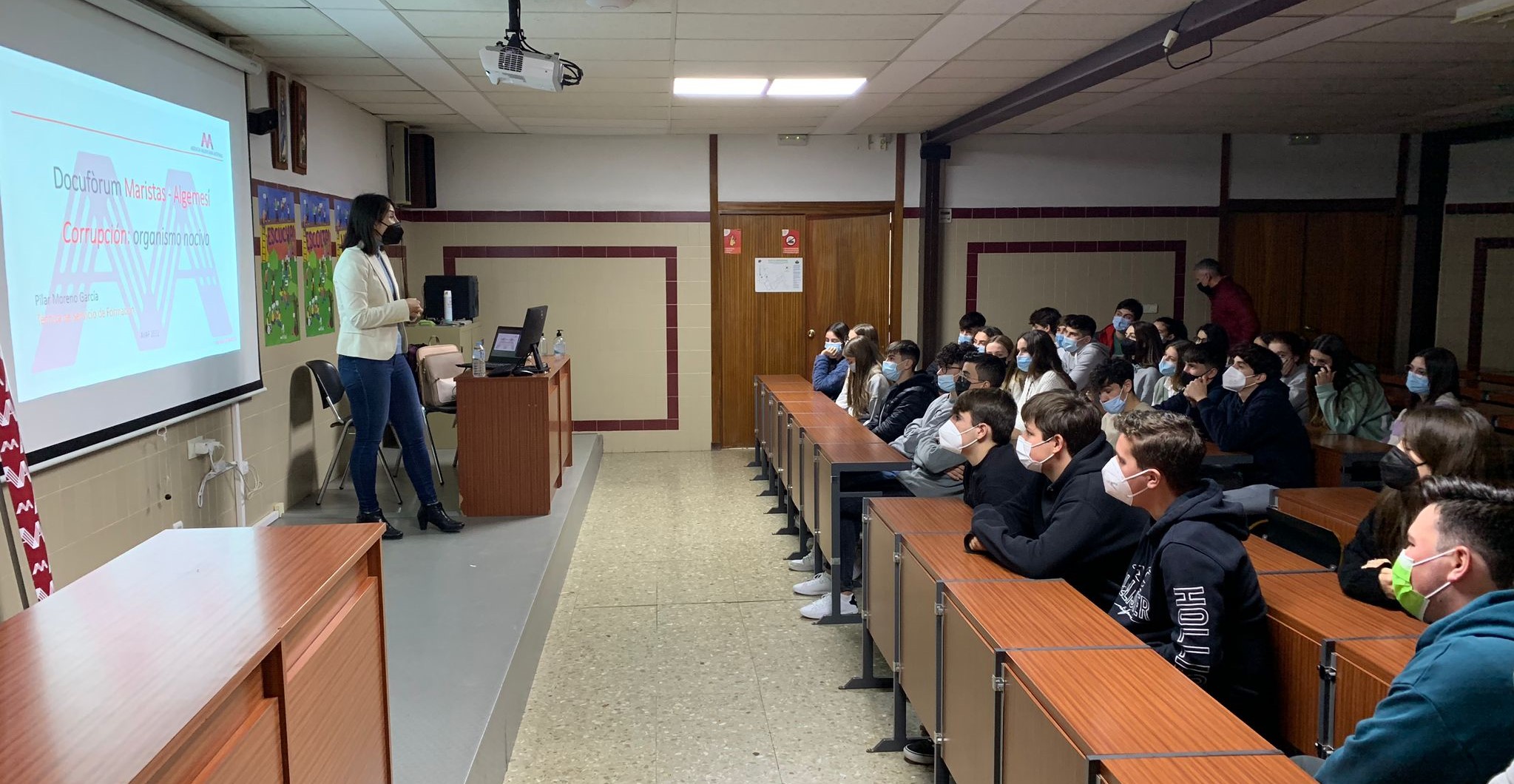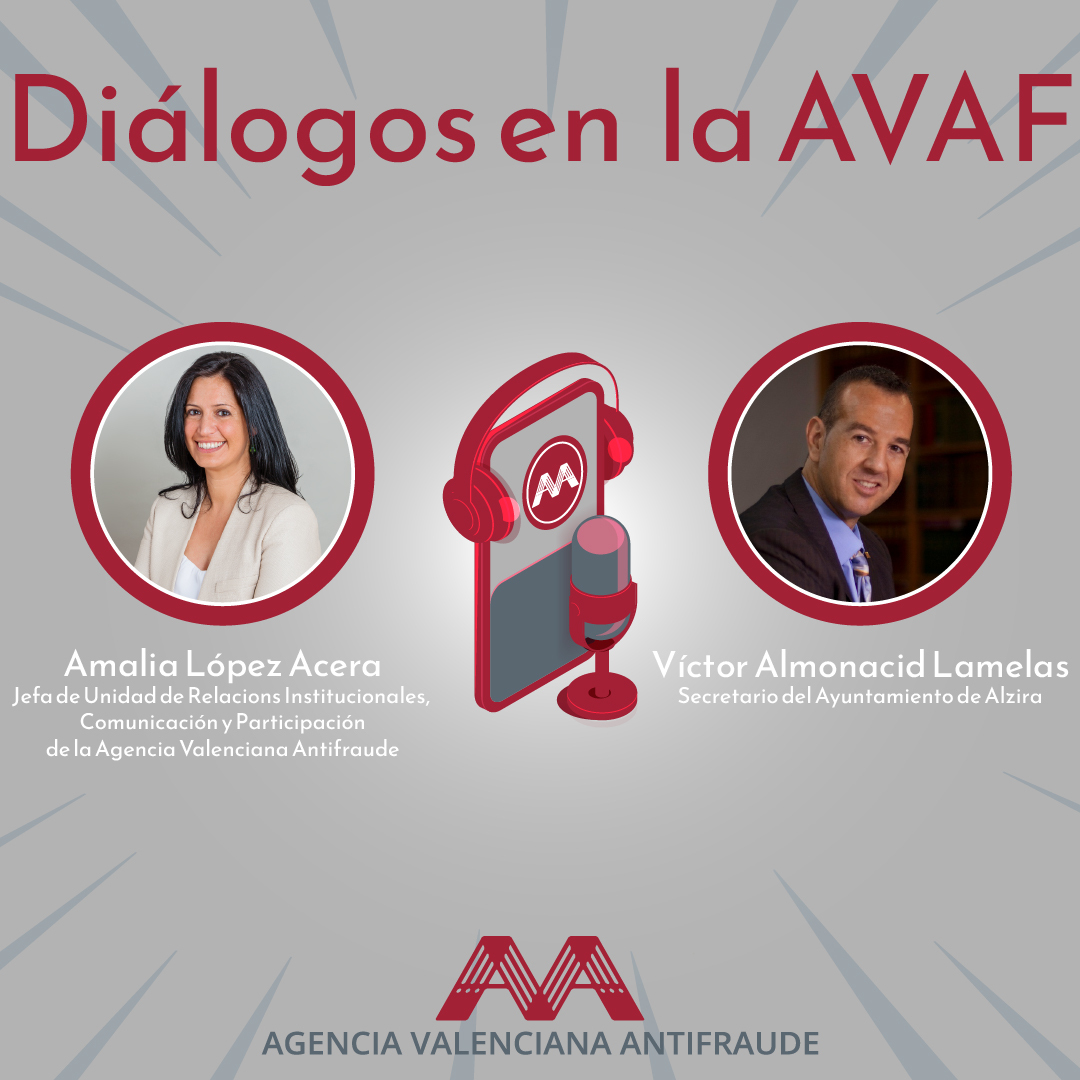València, 2 de febrer de 2022.- The director of the Valencian Anti-Fraud Agency, Joan Llinares, has given a keynote speech within the 48th Specialization Course in Law organized by the University of Salamanca.
The conference was entitled “The new legal framework of public integrity as a result of the Whistleblowers Directive and the HFP Order 1030/2021. The function of the Anti-Fraud Agencies” and is part of the “Compliance and management of legal risks” Program co-directed by Fernando Rodríguez-López, dean of the Faculty of Agricultural and Environmental Sciences of the University of Salamanca
Taking advantage of the visit to Salamanca, both the director of the AVAF and the deputy director, Teresa Clemente, met with Eduardo Fabián Caparrós, director of the Master’s Degree in Anti-Corruption Strategies and Integrity Policies of the University of Salamanca, as a representative of the Study Group Against Corruption (GRESCO-USAL) and the Research Center for Global Governance (CIGG-USAL).
The representatives of both institutions have reviewed the different academic and research actions that have been carried out in recent months based on the Agreement signed last June between the Valencian Anti-Fraud Agency and the University of Salamanca and outlined the lines of collaboration and work to be developed in 2022, taking advantage of the excellent results obtained from the internship carried out at AVAF in recent months by doctoral student Cristina Fernández González.
You can watch the conference here:






